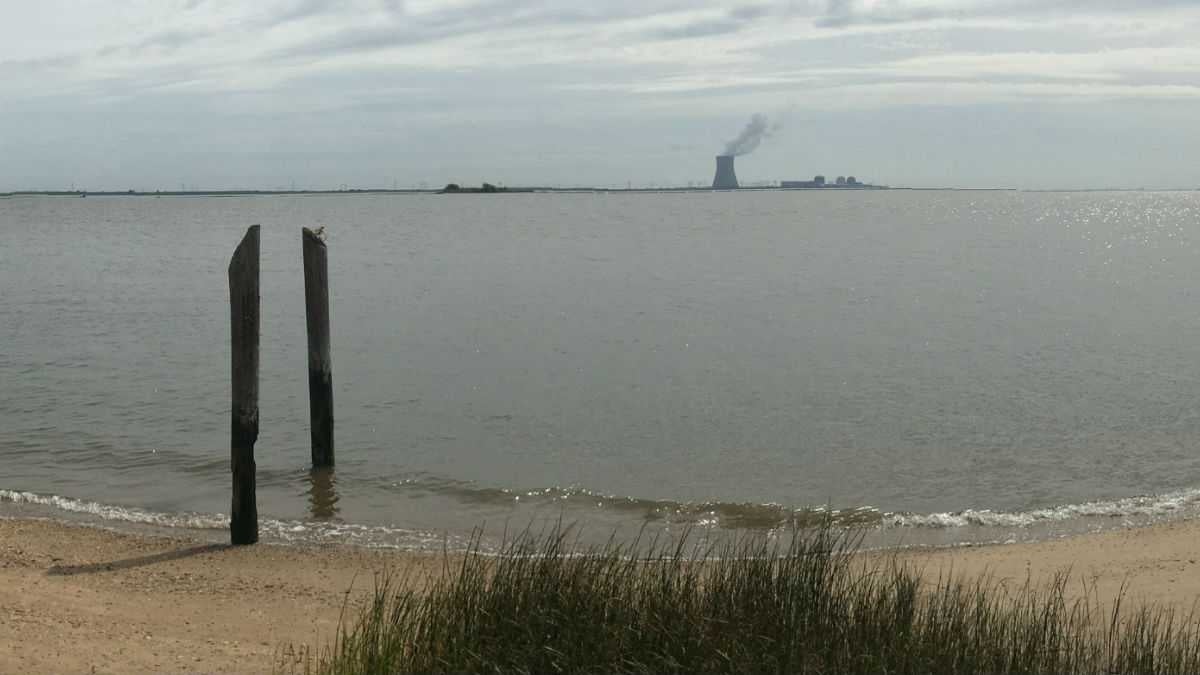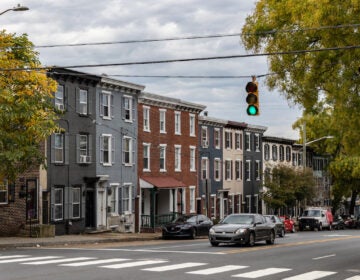Despite Delaware objections, power line project approved

The Salem Hope Creek nuclear power plant in New Jersey seen from the Delaware side of the river. This is close to where a proposed underwater powerline would be buried in the river. (Mark Eichmann/WHYY)
A power line project from the Salem Hope Creek Nuclear Plant to Delaware, buried under the Delaware River, is moving forward.
Regional electrical grid operator PJM approved the restart of what’s known as the Artificial Island project on Thursday. The project is designed to improve reliability of electric power coming from the nuclear plants on the Delaware River.
Leaders in Delaware and Maryland objected to the project because the cost burdened fell heavier on those states than other states that would get more benefits from the project.
“The board reached its decision after thoughtful review of additional analysis and stakeholders’ input,” said PJM president and CEO Andrew Ott in a statement. “We are satisfied that the original solution- with modifications- is the right solution to address operational performance and reliability issues related to Artificial Island generating facilities.”
Last week, Delaware Gov. John Carney joined Maryland Gov. Larry Hogan in writing a letter to PJM, objecting to the cost allocation that they say would increase power bills in their states as residents covered 90 percent of the project cost.
“This is a bad deal for electric ratepayers in Delaware and across Delmarva,” Carney said. “I’m proud to stand with Governor Hogan to oppose the current cost allocation for this project, which would unfairly raise costs for businesses and families in Delaware and across our region.”
Delaware’s Congressional Delegation of Senators Tom Carper and Chris Coons and U.S. Rep. Lisa Blunt Rochester also sent a letter to PJM, calling the costs for Delaware rate payers unacceptable. “The cost estimate for the project currently stands at $279 million and, under the cost allocation model proposed by PJM, Delmarva zone ratepayers would pay approximately $250 million of that cost,” the Delegation wrote. “We will continue to speak up – loudly – for the best interests of Delawareans and oppose this project’s cost allocation until it is remedied and we intend to pursue all options at our disposal.”
The project, which was initially approved in 2015, was suspended last August as PJM reviewed its analysis. Construction on the 230-kolovolt transmission line will be done by LS Power using a unique process to quickly bury the in the sediment below the Delaware River. The project is expected to cost $280 million. It’s expected to be in service by mid-2020.
WHYY is your source for fact-based, in-depth journalism and information. As a nonprofit organization, we rely on financial support from readers like you. Please give today.





